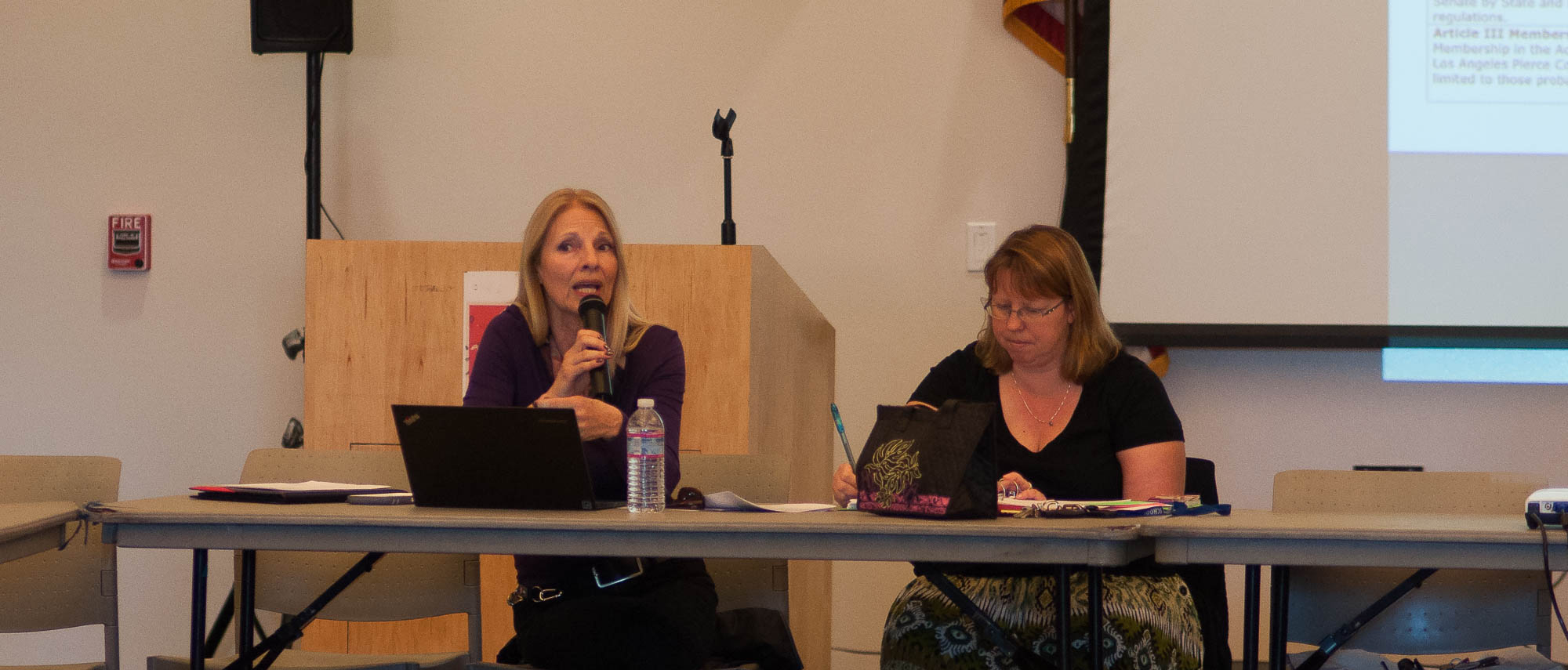
Transfer admission rates for Pierce College applicants to UCLA exceed statewide averages by 10 percent, rendering an applause from the Academic Senate in the Great Hall Monday.
Pierce College students were accepted to UCLA 38 percent of the time opposed to an average of 28 percent being granted admission from across the state in the fall of 2015, according to transfer center director, Sunday Salter. This ranks Pierce College number one out of 15 area colleges including every school in the LACCD plus Santa Monica, Pasadena, El Camino, Moorpark, Glendale and Long Beach, according to Mitra Hoshiar, director for honors program.
Students being properly informed on what classes to take in what order, and using Assist.org as well as speaking with counselors, are primary reasons for the success, according to Salter.
“Our students are prepared. They have strong GPAs, they’re finishing their major prep and they are getting admitted at a very high rate,” Salter said. “It is the right courses for the major and the GPA that come together to make the proper candidate for UCLA.”
The average Pierce College applicant to UCLA earned a 3.3 GPA and the average accepted student’s GPA was 3.5. Pierce College’s honors program students are accepted to UCLA 87 of the time ranking Pierce third among the 15 area schools, according to Hoshiar, who encourages students to join the honors program.
“Please spread the word. If students want to go to UCLA and want to increase their chance of getting into UCLA, the honors program is their winning ticket,” Hoshiar said.
“[Pierce] honor students get to apply to two majors when applying to UCLA, and this greatly increases their chances for admission, because out of the 125 majors at UCLA, 67 percent of applicants apply to the same 12,” Salter said.
During the meeting, a proposal to amend the senate’s constitution to allow adjunct professors to serve as members was passed. Adjunct professors have been participating on the Academic Senate for years but were not included in the constitution.
Kathy Holland, adjunct assistant professor of Political Science, explained why it is important for adjunct professors, who she estimates to outnumber full time professors on campus three-to-one, to have a voice on the Academic Senate.
“We do the same work as full-timers. We do identical work in the classroom, office hours and research, but we don’t have job security or the same pay,” Holland said. “We are expected to meet and exceed the policies that this body curates for what we do in the classroom. We want to be recognized for the work that we do and to be able to fully participate in the decision-making process on this campus.”
Lyn Clark, computer applications and office technologies department chair, asked Wendy Bass, chair of the technology committee, why in the Center of the Sciences only three of the 30 rooms are able to operate their technology.
“They are very upset and really concerned. I am wondering who is going to address this,” Clark said. “The technology committee, in my estimation, needs to think about how are we going to solve the problems for all of these instructors in the Center for the Sciences.”
Bass said that all the equipment in those 30 classrooms that is not functioning needs to be replaced.
“We are going to have to replace it all because there is no contract,” Bass said. “There was nothing put in place when they did that building [Center of the Sciences] to maintain the equipment.”




